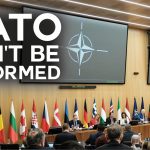Does the government need new Internet surveillance powers?
Surveillance of citizens by governments is generally a bad thing. All things being equal, the more of it the worse. So regardless of the specific details of the legislation the government is going to propose in relation to the real time monitoring of Internet and mobile phone traffic data, it is something we should have a negative presumption about. In advance of knowing exactly what is being proposed, I don’t intend to jump on any bandwagons about an Orwellian extension of state power. There will be plenty of opportunity to do that, and to do that with greater authority and seriousness when the time comes. Instead, let’s consider the other side of this particular utilitarian balance sheet. Does giving the government new Internet surveillance powers (whatever they are, exactly) actually offer any benefits for society?
Whenever a new piece of cyber-surveillance is proposed, the same three issues are always brought up: terrorism, child pornography and cyber-crime. And sure enough, it is these three issues that supposedly justify the renewed intrusion this time around.
The argument that the government needs real time, rather than retrospective access to traffic data for investigating ‘ordinary decent’ cybercrime, or even quintessentially evil child pornography is surely disingenuous. The conventional approach to crime is that one waits for a crime to take place before one tries to investigate it. If that approach is good enough for physical burglary or rape it is difficult to see why it doesn’t hold for their virtual equivalents. The Council of Europe Convention on Cybercrime, which the UK has ratified, already provides what is increasingly a global standard for what ISPs are required to retain in terms of traffic data. Why the police – and still less, as has been reported, GCHQ (which, after all, is supposed to be looking after national security) need this data in real time is far from clear.
Terrorism, by contrast, is always a useful way of justifying any extension of surveillance, because it is one of the very few crimes where the response is supposed to be proactive and preventative, rather than simply responsive.
It is unfortunate for the government’s case, then, that it is pretty much the settled conclusion of analysts these days that terrorist threats to the UK are receding rather than increasing. To be sure, there are issues on the horizon. Violent splinter groups of the IRA have been building up a bit of momentum, and there are general concerns about whether the rise of the English Defence League might herald some new kind of right wing Islamophobic militancy. But the kind of terrorism which actually matters – that is, the one that is supposed to justify detaining people for 28 days or putting them in jail for selling books – that is, of course, Islamist terrorism – is on the wane. The UK’s most radical Islamist groups are a shadow of what they were a few years ago, Al Qaeda ‘central’ has more or less been eliminated. The movement’s ‘regional franchises’ seem uninterested in global struggle. There hasn’t been a successful attack in Britain for seven years, and recently even online supporters of Al Qaeda have been protesting that Mohammed Merah – the Toulouse gunman – hasn’t been labeled by French authorities as clinically insane on a par with Norwegian terrorist Anders Breivik.
More importantly, the specific idea that the Internet is a major factor in the recruitment of terrorists has come under almost relentless assault in recent years. One by one, almost every claim made about the usefulness of the medium to the commission of acts of terrorism has come under serious questioning. It turns out, for example, that it is well nigh impossible to learn how to make bombs effectively using online instructions alone. It also appears, based on the ease with which Internet hatched plots have been disrupted that the use of the medium is (with no more than the generous surveillance capabilities already allowed to British authorities through the provisions of acts like RIPA) more a liability than a boon to would be terrorists. Indeed, on the hard-core pro-Al Qaeda forums, members are advised ad nauseam not to be an idiot and try to ‘join the jihad’ via the patently unsafe medium of the Internet.
Indeed, in the most thorough and theoretically rigorous literature review of ‘Al Qaeda influenced radicalization’ yet conducted – a review commissioned, ironically enough by the UK Home Office- the criminologists Wikstrom and Bouhana state quite clearly that ‘the Internet does not appear to play a significant role in AQIR’. If anything, they argue, the inherent nature of online relationships may mitigate against movement from speech to violent action.
If the government knows about some other, utterly anticipated threat to our collective security then it would be nice to know what it is supposed to be – in real time please, rather than after new legislation has already been passed.




I agree. Real-time monitoring is just what the government would like in order to shut down all those ‘dangerous’ protesters who want nuclear disarmament, Scottish independence, and other things unpopular with the establishment. Remember that guy from Republic who was put in jail for the entire day, during the ‘royal wedding’? More real-time monitoring will bring more of that.